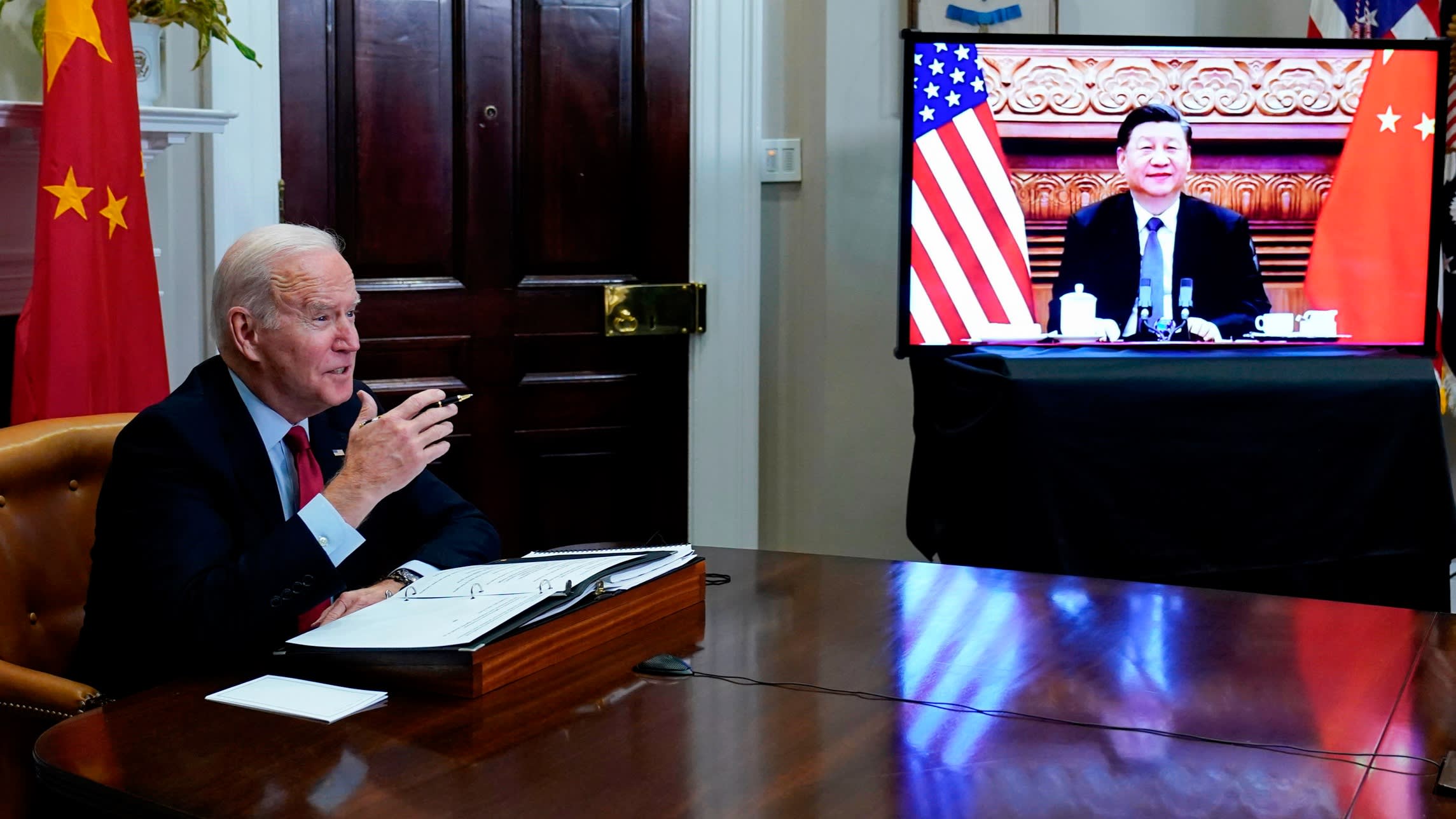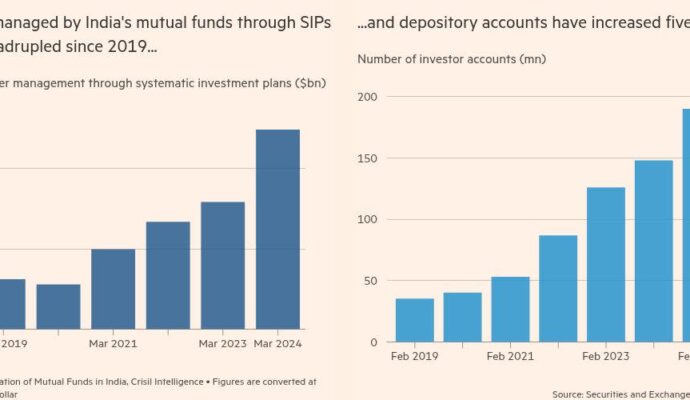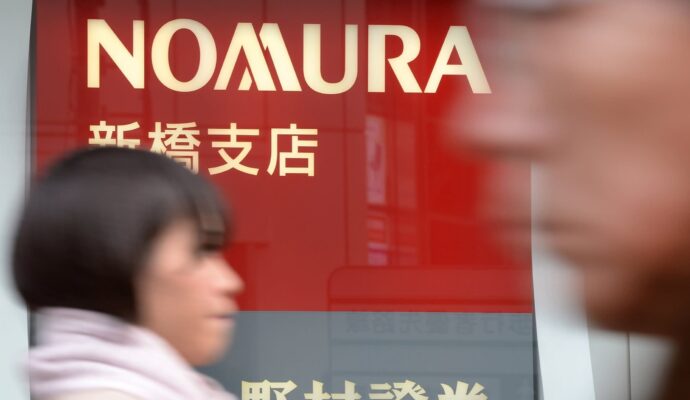
This article is an on-site version of our Swamp Notes newsletter. Sign up here to get the newsletter sent straight to your inbox every Monday and Friday
Let me first get something off my chest. Britain’s former prime minister, Liz Truss, went to Taiwan this week. In her speech, she said the west should cease any efforts at co-operation with China, including on climate change, because China is an enemy of freedom and democracy. Some Swampians will recall that there are lettuces with better political instincts than Truss, who only lasted 44 days in Downing Street (to be precise: she was in the job for a mere four Scaramuccis — after Anthony Scaramucci who survived just 11 days as Donald Trump’s communications director). So why would I be taking Truss seriously? Because she is doing her best to locate the most hawkish transatlantic stance on China and make herself its British head. To that end, she attacked her successor, Rishi Sunak, for not having redeemed his hustings vow last summer to declare China as the number-one threat to Britain’s national security and close down all 30 Confucius Institutes in the UK.
To the extent that you can be sure of anything nowadays, I am reasonably confident that Truss’s political future is behind her. Rarely in the history of governing has such an avowedly pro-market leader been so brutally felled by those very same markets. Yet nothing Truss says on China would differentiate her from the large cohort of American uber-hawks on China, or on Britain’s right. Her position is what we used to call neoconservative: we cannot do business with a state that represses its people, even if that means dropping the ball on global warming or pandemic preparedness. Which is why I am encouraged to see signs that Joe Biden’s administration is in subtle ways heading in a different direction. Senior officials like Jake Sullivan, Biden’s national security adviser, point out that they have not changed the stance that they set out on day one, which is to co-operate with China where possible and to compete with it when necessary. That has certainly been Biden’s consistent aspiration on paper.
But events have intruded to make the co-operate bit of that equation almost impossible. Many, if not most, of those disruptions have come from China’s side, including a steady ratcheting up of the rhetoric on Taiwan amid the deeply self-harming zero-Covid stance that Xi Jinping imposed on his people. I have said it before, but it is worth underlining: the difference between a one-man autocracy and autocracy by committee is significant. Unfortunately, we have to deal with the former for the foreseeable future. But the US has also played its part in creating today’s dangerous impasse between the two giants. Nancy Pelosi’s visit to Taiwan last summer was a vanity trip that added gratuitously to tensions. The US overreacted to the Chinese spy balloon. And the Biden administration has been less than convincing in its protestations that it does not aim for a full economic decoupling with China (their preference for the term “de-risking” does not clarify the semantics much). But the Biden team does keep trying to stabilise relations.
As David Ignatius points out in this characteristically wise column, Sullivan spent a dozen hours talking to Wang Yi, his Chinese counterpart, in Vienna last week. A lot of potential misunderstanding can be cleared up in such marathon exchanges of view. My bet is that Sullivan all but got Wang to agree to restore the China trip by Antony Blinken, the US secretary of state, that had been cancelled over the balloon incident. That, in turn, would pave the way for a second Biden-Xi summit. Moreover, I think the US is inching towards the view that China could play a constructive role in bringing Russia’s invasion of Ukraine to a negotiated conclusion. The more China is given a vested stake in global stability — which involves a degree of recognition by the US — the better. Contrary to the extreme paranoia of some of the China hawks, we can to some extent shape how China behaves and ought to keep trying. I give Biden credit for adjusting.
Rana, my question to you is which is more important: curbing China or reversing global warming? I suspect you will answer “both”, which to some degree would be my answer as well. In which case my follow up would be, what is the best way of doing both at the same time?
Lastly, it is not too late to sign up to the FT Weekend festival this Saturday in Washington. I will be interviewing author Salman Rushdie, who will join the festival virtually and Hillary Clinton who will be there in person. Rana will be in conversation with Chris Miller, the author of Chip War as well as chef Alice Waters. Save $20 off using promo code NewslettersxFestival.
Recommended reading
My column this week poses the Kamala Harris question. Since Biden cannot drop her from the ticket, he should make a virtue of necessity. It is time to build her up — even more than most vice-presidents, she is after all just a heartbeat away from the top job.
I was surprised to find myself in agreement with this Ross Douthat column in The New York Times about the failure of marijuana legalisation. As he points out, the drug is associated with a surge in schizophrenia in young men. I know a couple of examples of this and so that resonates anecdotally. Moreover, the original basis that made supporting legalisation so hip among libertarians and on the left — that it was used disproportionately to incarcerate black men — has little basis in fact and those trends have hardly been dented.
Finally, my colleague Anjana Ahuja has written on the important topic of rising loneliness in our societies — a problem that is hidden in plain view, and which contributes in ways both obvious and subtle to our political malaise, as well as to our public health problems. There needs to be more focus on why more and more people in modern society feel isolated and alone.
Rana Foroohar responds
Ed, my answer is unequivocal — making the transition to a green economy is more important than “curbing” China for three reasons. First, I have always rejected the idea that any outside country could make China do much of anything. Indeed, I think the arrogant and naive assumption on the part of western policymakers that China would become more “like us” as it got richer — or that it would play by western political and economic rules — is why we are even in the situation with Beijing that we are now. China is a big, strong, rich country that has its own politics and goals that it will pursue regardless of what the west does. But what the US and Europe and other like-minded countries CAN do to both roll back global warming and protect themselves from further economic coercion on the part of China, Russia or any other autocratic state with chokepoints is to move as quickly as possible to the green transition.
We should be securing our own lithium battery alliances and creating a coalition of exporting and importing countries of rare earths to counter the Opec-like cartel that China is building. In an ideal world, we would have a set price on carbon. This would end much of China’s mercantilism, which depends on underpriced labour and commodities, as well as poor environmental standards in many cases. I do not think that doing these things amounts to “curbing” China, because nobody could. They amount to smart, resilient political and economic practices.
I am all for Biden and Xi talking more and setting a floor or a safety-net or whatever you want to call it under the Taiwan issue. And if we can make progress together on climate, great! But let’s be clear — China is not a child to be manipulated by the west. It is a full-fledged actor with its own agenda. I am glad that the Biden administration continues to pursue a strategy of de-risking, which to me is quite a clear strategy that involves reducing interdependencies in sensitive areas with unreliable partners, while pursuing multiple points of redundancy of supply in crucial systems. If that includes a certain amount of decoupling with China in strategic sectors, I am OK with that, too. The more chips and rare earth minerals and key pharmaceutical inputs the world has, the better.
Your feedback
We’d love to hear from you. You can email the team on swampnotes@ft.com, contact Ed on edward.luce@ft.com and Rana on rana.foroohar@ft.com, and follow them on Twitter at @RanaForoohar and @EdwardGLuce. We may feature an excerpt of your response in the next newsletter

